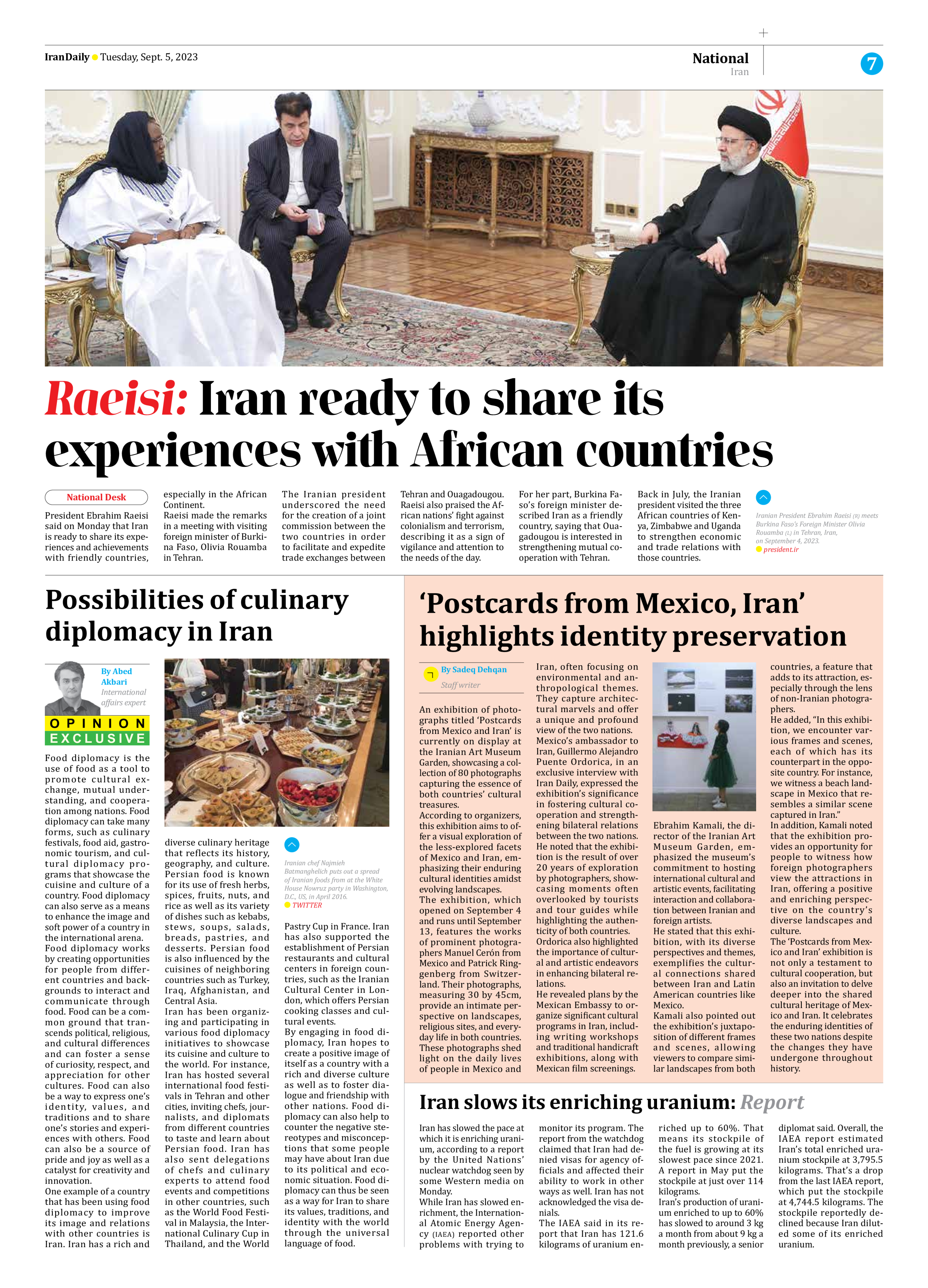
Possibilities of culinary diplomacy in Iran
By Abed Akbari
International affairs expert
Food diplomacy is the use of food as a tool to promote cultural exchange, mutual understanding, and cooperation among nations. Food diplomacy can take many forms, such as culinary festivals, food aid, gastronomic tourism, and cultural diplomacy programs that showcase the cuisine and culture of a country. Food diplomacy can also serve as a means to enhance the image and soft power of a country in the international arena.
Food diplomacy works by creating opportunities for people from different countries and backgrounds to interact and communicate through food. Food can be a common ground that transcends political, religious, and cultural differences and can foster a sense of curiosity, respect, and appreciation for other cultures. Food can also be a way to express one’s identity, values, and traditions and to share one’s stories and experiences with others. Food can also be a source of pride and joy as well as a catalyst for creativity and innovation.
One example of a country that has been using food diplomacy to improve its image and relations with other countries is Iran. Iran has a rich and diverse culinary heritage that reflects its history, geography, and culture. Persian food is known for its use of fresh herbs, spices, fruits, nuts, and rice as well as its variety of dishes such as kebabs, stews, soups, salads, breads, pastries, and desserts. Persian food is also influenced by the cuisines of neighboring countries such as Turkey, Iraq, Afghanistan, and Central Asia.
Iran has been organizing and participating in various food diplomacy initiatives to showcase its cuisine and culture to the world. For instance, Iran has hosted several international food festivals in Tehran and other cities, inviting chefs, journalists, and diplomats from different countries to taste and learn about Persian food. Iran has also sent delegations of chefs and culinary experts to attend food events and competitions in other countries, such as the World Food Festival in Malaysia, the International Culinary Cup in Thailand, and the World Pastry Cup in France. Iran has also supported the establishment of Persian restaurants and cultural centers in foreign countries, such as the Iranian Cultural Center in London, which offers Persian cooking classes and cultural events.
By engaging in food diplomacy, Iran hopes to create a positive image of itself as a country with a rich and diverse culture as well as to foster dialogue and friendship with other nations. Food diplomacy can also help to counter the negative stereotypes and misconceptions that some people may have about Iran due to its political and economic situation. Food diplomacy can thus be seen as a way for Iran to share its values, traditions, and identity with the world through the universal language of food.







